Spitfire goes to the ends of the earth to help its clients solve some of the world’s most pressing issues. Even when journeying across little-traveled paths and facing fierce opposition, Spitfire guides clients to pioneer programs that protect vital civil rights around the globe.
There’s too much at stake to be anything but trailblazing. Consider the threat to digital rights faced in many parts of the world. Attacks on free speech are real risks when government officials or power-hungry oppressors use the internet as a weapon to control populations by engaging in massive misinformation campaigns or shutting down the internet at the first sign of citizen opposition.
The Ford Foundation knows that if freedom of speech is silenced somewhere, it can be silenced anywhere. That’s why the Foundation created the Internet Freedom project to establish robust coalitions to defend digital rights, and turned to Spitfire to lead the development of a globally scalable strategy.
The project started in 2015, when the Foundation convened five civil society grantees that are pioneering digital rights efforts in Mexico. This diverse coalition is made up of organizations with one thing in common: a determination to protect freedom of speech on the internet.
Ford asked Spitfire to help these grantees unite for the benefit of their shared goal and chart their own destiny. Spitfire responded by bringing in a team of communication strategists, campaign developers and coalition managers to guide the civil society groups through the process of developing a coalition with a shared strategy.
The project began with a landscape analysis to map the work of each group and the condition of internet freedom in Mexico, including legal issues surrounding digital rights, data privacy and government structures. In a country where there are few regulatory agencies like the U.S. Federal Communications Commission — and scant laws governing telecommunications – Spitfire, Ford and the coalition had to craft a framework from scratch for building a sustainable effort to protect internet freedom.
In addition to establishing a better understanding of the internet landscape in Mexico, Spitfire got to know the groups and their work. This familiarity bolstered Spitfire’s knowledge of each organization’s strengths and areas of expertise, and gave each coalition member insight into what their partners could contribute to the effort. Mapping the work of the groups resulted in a clear picture of each organization’s capacity, challenges and opportunities, so they could create a common, collaborative theory of change.
Building a coalition of disparate groups takes time and diplomacy — and a lot of meetings. Spitfire facilitated bi-weekly conference calls and four in-person strategic planning meetings that informed the development of a coordinated coalition with a single agenda, guiding groups that once considered each other independent actors into a unified team. A few months after the process began, the coalition had established a substantial number of specific issue areas to work on together.
That was the first phase in a two-year effort to build successes, share knowledge about what each group was working on, and develop a foundation from which the groups could explore other collaborations beyond the parameters of the Internet Freedom project. With continued guidance from Spitfire, the coalition’s effort to joining forces around specific objectives is ongoing — and it’s making a significant impact.
The visibility of these organizations has increased dramatically, both within Mexico and among international civil society groups. So much so, that the Mexican government installed malware on the computer systems of the civil society organizations so the government could spy on them. Because the coalition already had worked together to elevate their organizations’ profiles and prominence, it was able to sound the alarm internationally, garnering coverage in the New York Times about the “spy government” of Mexico.
After having worked under the radar for two years, in 2017 the coalition agreed to publicly identify themselves as a government watchdog. The Mexico Internet Rights Coalition is now presenting a united front in support of digital rights. The media and communications training provided by Spitfire has prepared the coalition to bring its work into the public eye, where it can educate both Mexico’s citizens and human rights organizations working to defend free speech.
Spitfire’s efforts in Mexico are a springboard for creating similar coalitions in other countries, which was the intent all along. In 2016, Spitfire began working with eight civil society organizations in Africa that are pushing back against government attempts to use the internet to manipulate the public. The systems and processes established in Mexico are working in Africa, where the organizations have identified two key areas of focus for their efforts in 2018. Spitfire also is helping the grantees create better systems for collaboration and sharing knowledge as they pursue common goals.
Through its expertise in coalition building, communication and project management, Spitfire has helped the Ford Foundation and its Internet Freedom project grantees establish coalitions that are equipped to act as a unified force to protect free speech. Plus, the effort has strengthened the skill and capacity of each organization. Moving forward, the coalitions in Mexico and Africa — and wherever the program expands — are well-positioned to collaborate and communicate with strength, speaking truth to power to protect digital rights.
